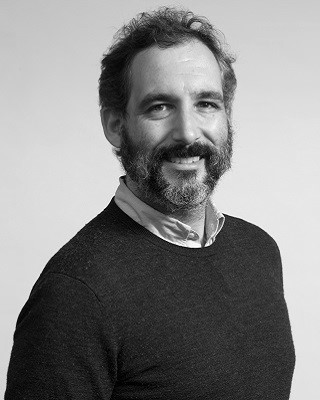Deputy Director of ICNS | Associate Professor Gregory Cohen
 | Associate Professor in Neuromorphic Systems, Deputy Director of ICNS Using biology-inspired neuromorphic technologies to solve real-world problems.Gregory Cohen discovers how biology helps us interact with the world, and then uses this knowledge to build smarter, more efficient and more capable systems. |
Overview
The way that computers and machines sense the world around them needs to be improved. Animals are capable of completing far more complicated visual tasks than even our most sophisticated systems - and they do so using a fraction of the power that machines use.
Clearly, there is a lot we can learn from how biology senses and processes the world. Associate Professor Cohen’s research explores new approaches to sensing and understanding information.
By looking at how biology senses the world and how biological brains process information, he builds electronics and algorithms that tackle real-world problems with the power efficiency, robustness and reliability of biological systems.
His ultimate aim is to build more capable systems that come closer to functioning in roles where only humans are able to perform the tasks at the moment.
Neuromorphic engineering looks to take ideas from biology and use them to solve hard problems.
Associate Professor Cohen and his team use neuromorphic systems to tackle important issues such as monitoring satellites and space junk, looking for atmospheric phenomena, and for high-speed tracking and detection.
His research interests include neuromorphic engineering, biology-inspired sensors, event-based sensing, space imaging, space situational awareness, space domain awareness, spiking neural networks, and neuromorphic computing.
Impact
Associate Professor Cohen’s research has already led to significantly improved ways of sensing the visual world. This has been applied to tackle challenging problems such as tracking objects in space and conducting earth observation tasks from space.
He created the field of neuromorphic space imaging, including imaging from the ground with terrestrial sensors, and pioneered the use of neuromorphic sensors in orbit.
As a result of this work, there are now multiple large-scale research efforts worldwide to explore neuromorphic sensors for Space Situational Awareness (SSA) and Space Domain Awareness (SDA).
His team has put four sensors into space - two of which are currently operating on the International Space Station.
Career
Gregory Cohen is an Associate Professor in neuromorphic systems and the Deputy Director of the International Centre for Neuromorphic Systems (ICNS) at Western Sydney University. He leads the neuromorphic algorithms and space applications for ICNS.
Prior to returning to research from industry, he worked in several start-ups and established engineering and consulting firms including working a consulting engineer in the field of large-scale HVAC from 2007 to 2009, as an electronic design engineer from 2009 to 2011, and as an expert consultant for Kaiser Economic Development Practice in 2012.
He is a pioneer of event-based and neuromorphic sensing for space imaging applications, unsupervised feature extraction, bio-inspired machine learning, and neuromorphic computation systems.
Collaboration
ICNS is a world expert in neuromorphic sensing and is interested in forming collaborations with research groups with expertise in specialised domains. Together, they can then develop novel ways to solve their problems using our neuromorphic technology.
Previous collaborations have included the United States Air Force Academy, Air Force Office of Scientific Research, the Royal Australian Air Force, and Thales.
Connect
| g.cohen@westernsydney.edu.au | |
| Phone | +61 2 4736 0245 |
| Location | Western Sydney University Penrith (Werrington South) campus |
| Room | BA.2.02 |








